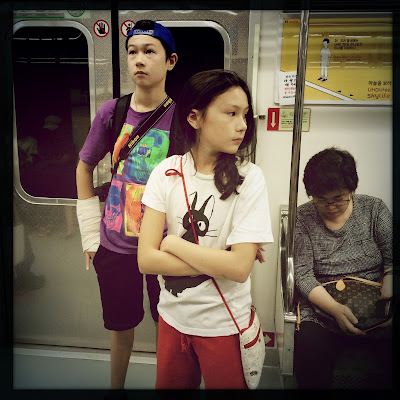My life is marked by death.
Stickies on the worn pages.
Each a misaligned tab to start a chapter
Of a life filled with loss.
August 16, 1977, I watch
Hogan’s Heros.
My mother in the kitchen cooking Chicken A La González.
The black ticker tape … The King is Dead.
My mother runs and locks herself in the bathroom.
Sobs seep from underneath the door.
February 24, 1987, I wake to a phone call.
“She had been sick but seemed better … ”
And I sob,
why didn’t you tell me she was sick?!
I would have been there for her!!!
The
first significant death of my little life.
February 2, 2001, I hold my infant son, as the phone rings …
“She died in her sleep. She did not suffer.”

The only Mom I knew was gone.
All mothers are erased …
October 30, 2010, her salsa is silenced.
The view of the casket, I handle.
They close the casket, and I collapse as
My sobs echo throughout the small parlor.
Todos las abuelitas se desvanecen …
January 3, 2015, a late night call …
“He fell outside the hospital, on his way to work.”
Ever the humanitarian, the lover of others.
His life dedicated to alleviating their suffering,
Comforting families, healing with laughter and love.
But now, I am enraged;
he was mine, not theirs.
Daddy, Papito, Papí.
January 2, 2016, the decision to stop the pain.
He was my furry, purry comforter in Korea.
He warmed my chest when the weight of loss
Suffocated me. He was bright and loving.
He never asked for anything, but he wanted me …
As they take him from my arms,
His weak body uses the last reserves
To scream for me with pleading little eyes.
They shut the door.

I ride an hour to the demilitarized zone.
They ask if I am Christian or Buddhist.
The service with only one mourner in a closet-like room,
Incense burning and English Christian music pipes in.
His stiff, small body there for me to pet one last time.
The door opens the cart is rolled to a window.
I am placed on the other side of the glass …
For one … last … look
At this sweet body.
The furnace door is shut.
The flames dance above the furnace in bright colors.
In thirty brief moments, I stand again at the window.
The solemn Korean men use gloves to pick up …
His tiny bones. Fragile and light.
Lines of white that once held flesh and fur.
The whirr of the blade, and I am sent off on the bus.
His lovely ashes folded meticulously in hanji paper
Placed in a celadon urn, and
Wrapped carefully in a white handkerchief.
My body is numb on the two-hour journey back.
No more loss, please.
I cannot keep comforting myself with
Legacies of lives well-lived.
I feel alone, as lives must continue.
School, a birth, work …
We continue. I hope to strengthen with time.
No more loss, please …
please … please …
A sweet baby face. The joy is returning.
A text … “Are you sad?”
A second text … “Prince.”
My heart jumps to my throat.
I choke.
Do not tell me he was “just a singer,”
“A celebrity,” “a person in the public eye.”
“How silly to cry over someone you do not personally know.”
Shut the fuck up.
You know nothing of his role in my life.

He gave me pride to be me,
While you told me I was “almost normal.”
His songs taught me to love my body,
Not loathe my small frame, my “exotic” hair and eyes.
His music … intravenous strength and sensuality.
His words: “You have to live a life to understand it.”
No one around me lived my life in the 1980s.
But Prince Rogers Nelson empathized.
His lyrics lay my low self esteem on a bed of acceptance,
Just what a young woman needed.
Now, as the door shuts behind me,
I can sob as my mother did just shy of 40 years ago.
Her King died and left her to a life of existing for her family.
My Prince has died and left me to exist, but as a stronger woman.
His life’s work … leaving doors wide open
For us to run outside and dance in the purple rain.

















































